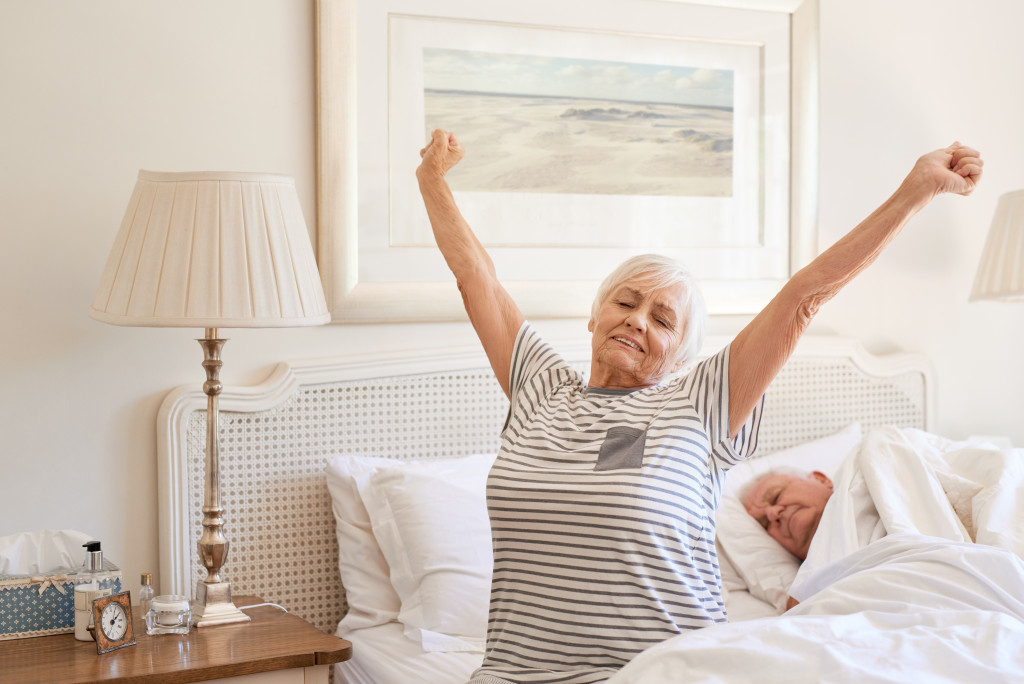During the COVID-19 pandemic, older adults faced greater risks. In addition to higher vulnerability to server complications, seniors also experience greater difficulties accessing care and using technology to adapt to the new normal.
But an often overlooked effect of the pandemic is its mental toll on the aging population. The University of Michigan Health reports that nearly one out of five older adults felt their mental health worsen since the pandemic began in March 2020.
A Closer Look at the Pandemic’s Mental Toll
Though the types of emotions vary among seniors, many reported negative feelings. When asked about their mental state during the last two weeks before the survey, 28% said they felt depressed or hopeless. Additionally, 34% said they felt anxious or nervous, while 44% say they felt stressed.
And it’s not hard to see why they feel this way. With normal life grinding to a halt, seniors needed to cope with dramatic changes quickly, whether they are relatively healthy or receive palliative care. Millions of people lost their jobs, and much of the remaining workforce had to leave their offices to work from home. Establishments that have once offered diversions and leisure to aging adults had to close. Seniors had to learn how to use digital platforms quickly to stay connected.
After all, isolation is a prime factor for deteriorating mental health.
Loneliness
While social isolation protected older adults from the threat of COVID-19, it came with a cost. In June 2020, just a few months after cities were locked down, 56% of adults over 50 reported feelings of isolation. This is double the figures recorded in a similar poll in 2018.
Sleeping Issues
Their mental health issues manifested as sleeping problems, as well. About 64% said they found it difficult to fall asleep or stay asleep at least once a week. These are double the figures in a 2017 sleeping poll of a similar group of seniors.
Change in Behavior
Worsening mental health could also manifest as changes in behavior. Family members or caregivers may notice the following:
- Seniors may have more episodes of shouting or emotional outbursts
- Older members may be more irritable
- They may experience a change in eating habits (e.g., loss of appetite)

Steps to Ensure Mental Well-Being among Seniors
If you’re living with a senior at home or providing care for one, you can take several measures to ensure their psychological well-being:
- Provide Security. The first step to achieving peace of mind is security. Ensure that older adults know how to protect themselves through social distancing, hand-washing, and getting vaccinated.
- Establish a Daily Routine. A routine serves as an anchor and provides stability to older adults. Help them develop and follow a consistent sleep schedule, regular meal times, and daily walks.
- Enable Social Connections. Be patient in teaching older adults the ways of digital communications. Teleconferencing and messaging apps have helped everyone cope with social isolation, and seniors would love to connect with their peers and family members.
- Take Advantage of Telemedicine. Check for telehealth platforms that offer consultations for seniors. It may give them greater peace of mind if they can access health care services while in the safety of their homes.
- Offer Productive Activities. If seniors are not yet confident to go out, or if it’s still difficult to go to a restaurant or movie house, help them find a productive and enjoyable activity. Gardening, for instance, soared in popularity during the pandemic as people began to focus on food security. Book sales also surged, and seniors may find comfort in the escapism that fiction offers.
- Reduce Digital Screen Time. In connection with engaging older adults in productive activities, try to reduce their screen time. While digital activities help them cope with isolation, excessive screen time could impair cognitive function and worsen mood screens. Moreover, misguided use could lead to misinformation and panic.
- Encourage Physical Activity. Countless studies have shown how effective physical activity can be toward improving mental health. Exercise can reduce anxiety, negative mood, and depression. It also increases self-esteem and, if done with a group, decreases feelings of isolation.
- Involve Seniors in Decision-Making. Preserve the dignity and self-esteem of senior adults by involving them in decision-making, especially when their health is at stake. Ask for their opinion, even during times of crisis.
Above all, remember that seniors may be fragile, but they aren’t helpless. Just like everyone else, older adults find it difficult to cope with a global health crisis. Although they have more experience under their belts, the pandemic is new to them, as well, and they need guidance and support from the people around them.



















